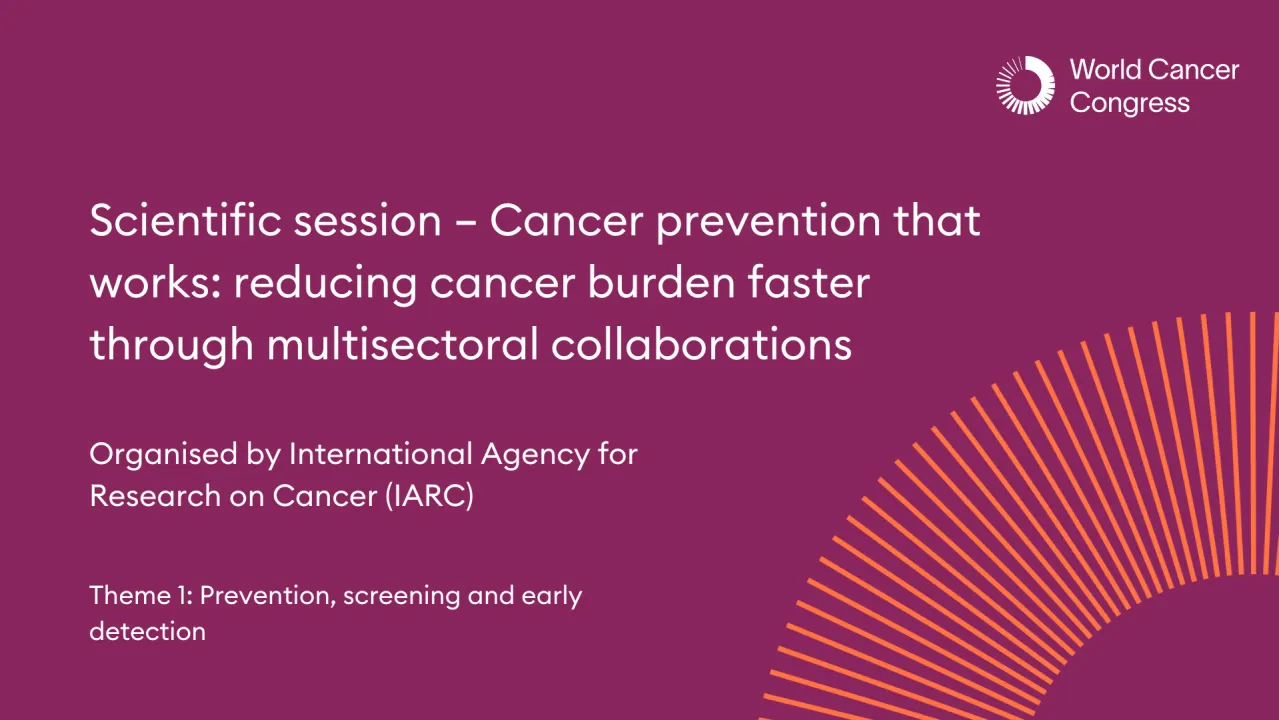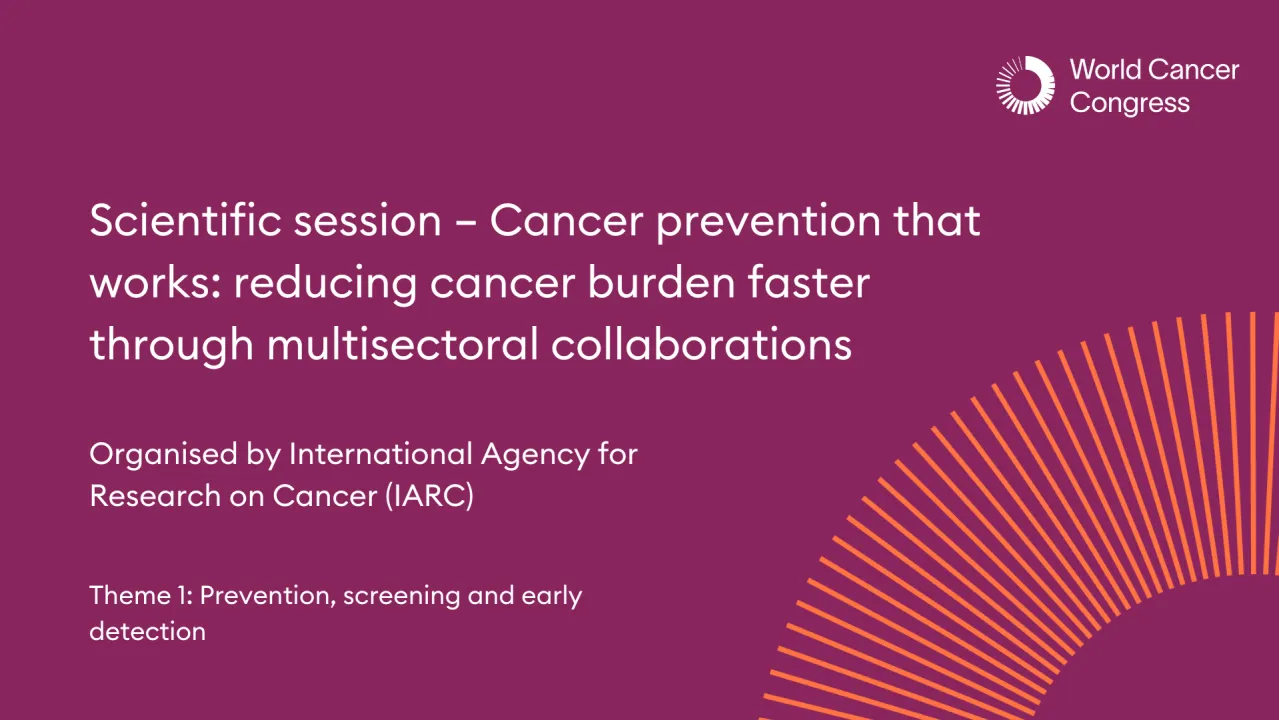

Scientific session – Cancer prevention that works: reducing cancer burden faster through multisectoral collaborations
Information
Chaired by Elisabete Weiderpass, IARC - International Agency for Research on Cancer (Switzerland)
Presentations:1. Preventable burden of cancer: the role of end-game tobacco control policies - Isabelle Soerjomataram, International Agency for Research on Cancer (IARC) (France)
2. Implementation of HPV prevention programmes: Successes and failures to reducing cervical cancer burden - Philip Castle, National Cancer Institute (United States)
3. Reducing overweight and obesity in Australia: Are we winning against the obesity epidemic? - Craig Sinclair, Cancer Council Victoria (Australia)
4. Regulatory instruments to support cancer prevention strategies - Mary Grace Anne Rosales-Sto. Domingo, McCabe Centre for Law and Cancer (Australia)
Speakers



